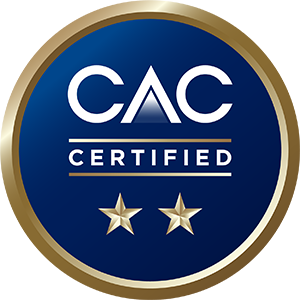Corporate Governance
EGCO Group recognizes the importance of good corporate governance as one of the crucial foundations of sustainable business. Throughout the years, EGCO is committed to upholding good corporate governance through compliance with relevant laws, rules and regulations as well as best practices for directors of listed companies and criteria for companies with good corporate governance system as prescribed by the Securities and Exchange Commission (SEC) and the Stock Exchange of Thailand (SET). To promote and foster good corporate governance principles in business operations, and to be practice guidelines for all directors, executives and employees, the Board of Directors (“Board”) has established written Good Corporate Governance Principles and Code of Conduct which are made available on the Company’s website and the website for internal communication (EGCO Groupnet).
The Board prescribes Good Corporate Governance Principles based on 6 pillars– P-R-E-A-C-T – as a framework for overseeing and managing EGCO Group’s business operations as follows:
Board Structure (persons)
The Board of Directors has the primary responsibility of conducting EGCO’s business to benefit the Company, its shareholders, and all stakeholders. Additionally, the Board collaborates with the Management in formulating EGCO’s vision and policies and approves the corporate budget. The Board also monitors the Management’s performance and proposes effective solutions.
EGCO’s Board comprises not less than 5 and not exceeding 15 members as stipulated in the Company’s Articles of Association. The composition is based on the diversity of gender, individual skills, and experiences that would contribute to the balance of Board composition and benefit the Company’s business.
The current Board’s structure (as of January 1, 2025) is outlined below.
Board Skill Matrix and Experience
Diversity of skills and experiences (as of January 1, 2025)
Definition of Independent Director and its Comparison between Governance Criteria
The Electricity Generating Public Company Limited (“EGCO”) has defined qualifications of the Company’s independent director more strictly that the definition stated by the Stock Exchange of Thailand (“SET”) and the Capital Market Supervisory Board’s Notification regarding Application for and Approval of Offer for Sale of Newly Issued Shares. When comparing the qualifications of EGCO’s directors with the independent director’ definitions stated by EGCO, the SET and the standard of the Dow Jones Sustainability Indices (“DJSI”), the qualifications of independent directors will be varied.
Corporate Governance Structure
EGCO Group grounded its corporate governance principles by appointing the board of directors with the assignment to govern and oversee the executives’ performance, apart from laying out the corporate strategy and policy. Those major responsibilities impact the Group’s present and future operational directions. The well-established corporate governance ensures the EGCO Group’s compliance with international standards, builds trust and credibility for stakeholders in a transparent and fair management system. Furthermore, the Board has appointed 5 sub-committees responsible in these specific areas as follows:
1. Audit Committee
2. Risk Oversight Committee
3. Investment Committee
4. Nomination and Remuneration Committee
5. Corporate Governance and Sustainability Committee
Each Board committee has its own charter which prescribes its functions, composition, term of office, responsibilities, and meeting conduct. These charters, approved by the Board, are subject to periodic reviews as deemed appropriate.

